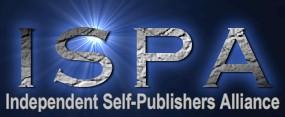
The Independent Self-Publishers Alliance is an organization for writers who publish their own books. There is no charge to use the website or forum or to join the Alliance.
This website exists to encourage and help writers to become truly independent self-publishers, so they can avoid using vanity publishers. We’d also like to help self-publishers produce better books, get more respect and sell more books.
Many vanity publishers call themselves “self-publishing companies.” They’re not. Just as no one can eat lunch for you, no other person or company can self-publish for you. The words just don’t make sense.
There is a fundamental difference between self-publishing and vanity publishing.
♦An independent self-publisher tries to make money by selling books to readers.
♦Vanity publishers make most of their money by selling services to naive writers, not by selling books to readers.
Vanity publishers’ books are often ugly, error-filled and overpriced, and very few copies are sold. A “real” or “independent” self-publisher establishes a business but usually doesn’t do everything necessary to produce and sell the books. The author/publisher usually hires editors and designers, purchases photography, owns ISBNS, obtains LCCNs and copyrights, chooses a printer and promotes the books.
That’s very different from buying a “publishing package’ from a vanity publisher. Writers who use such companies as iUniverse, AuthorHouse, DellArte Press, OutskirtsPress, Westbow Press, PublishAmerica or Xlibris are not self-published authors. They are customers (or victims) of a vanity publisher.
Independent self-publishing is not for everyone. It requires more work, and may even cost more money than using a vanity publisher. But it should lead to better books, higher income, more satisfaction and even more fun.
Other publishing paths may be better choices for some people.
This website will help you sort out your options. The people behind this site merely want writers to produce better books so readers can read better books, and so self-publishers will receive more respect.
I do take issue with the self-publishing vs. vanity publishing distinction. Self-publishing is primarily about the decision to release a book yourself, not about the royalty percentages, or if you own your ISBN – it’s about putting out your own work. However you do that, it’s all self-publishing. That those services can be a rip-off is another issue. Plenty of decent books come out on iUniverse and others and they shouldn’t be stigmatized any more than self-publishing on the whole should be stigmatized.
Get an Editorial Review | Get Amazon Sales & Reviews | Get Edited | Get Beta Readers | Enter the SPR Book Awards | Other Marketing Services








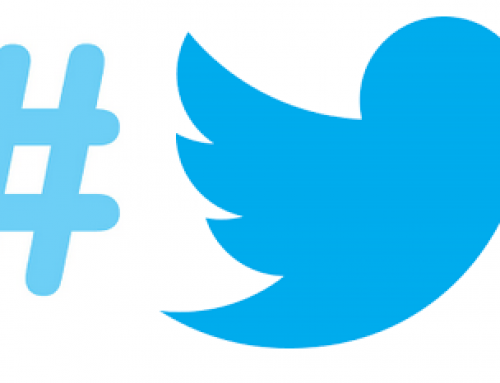

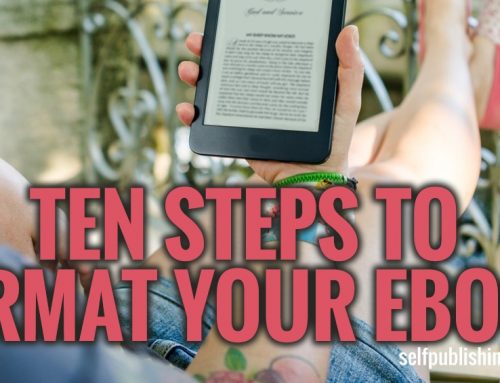

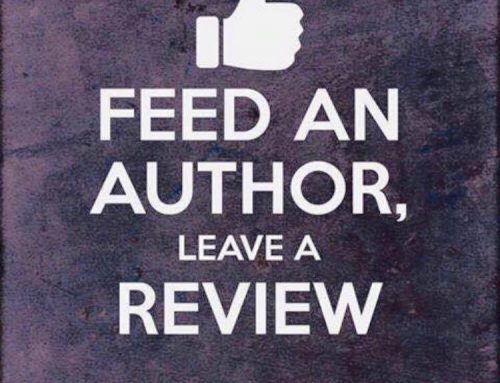


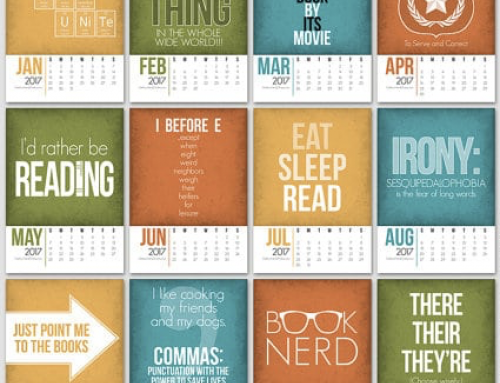

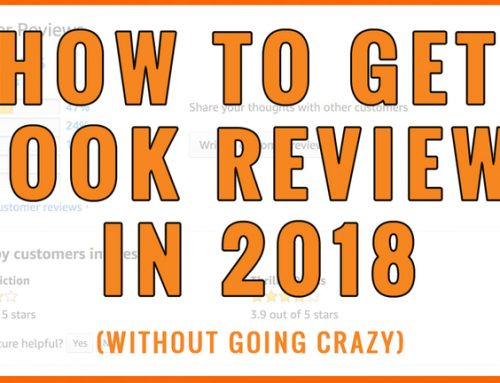
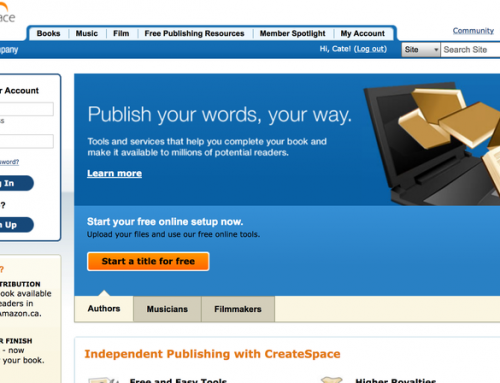
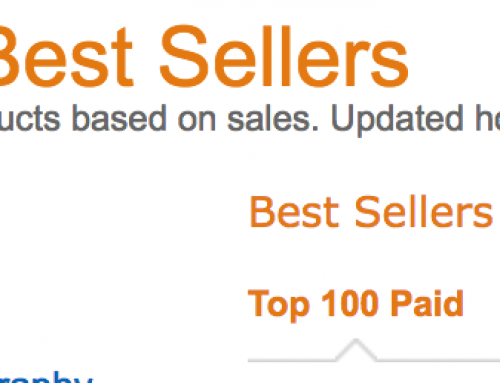
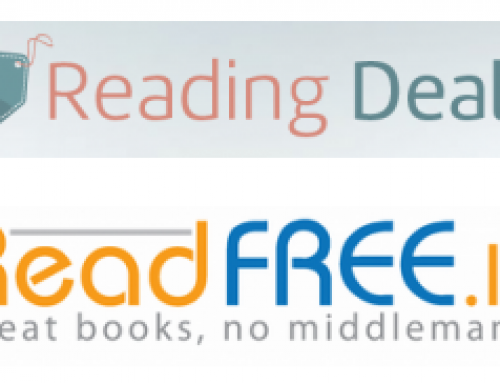
Could not DISAGREE more with this distinction between what is a “vanity publisher” and “self-publisher” and so does the legal system. In 2008, BookSurge was sued for defamation arising from the content of a book it had “published” for the author. If BookSurge was the publisher in the traditional sense of the word, then it would have been liable for the defamatory content. If BookSurge was merely the vehicle for the author to print and publish the book ie the author is the publisher, then BookSurge would not be liable. The court ruled that BookSurge was NOT a publisher ie “vanity” or otherwise, but “an independent company that transforms PDF documents into books with no editorial control and no communal process with the author.” The term “vanity publishing” really needs to be archived – it is no longer relevant.
Thanks for mentioning ISPA. I have no objection to the writers who use companies like iUniverse (I recognize that they may be a good solution for many people), but I strongly object to the dishonesty and incompetence that is common with the pay-to-publish (vanity) companies.
To Leigh Cunningham:
The opinion of one court (not “the legal system”) in one trial does not change the status of the world, or the use of language.
This was definitely NOT a landmark decision, and it applied to one specific instance.
Booksurge was not a typical vanity publisher.
BookSurge (now merged with CreateSpace) and Lulu function as both printing services for self-publishers, AND as vanity publishers.
The court apparently ruled in a situation where a writer purchased book production services from BookSurge, but BookSurge did not function as the publisher.
Other companies, such as Outskirts Press and PublishAmerica are vanity publishers, only.
In the book business, the “publisher of record” is the entity that “owns” the ISBN.
Vanity publishing is a useful (and pejorative) description of companies that make most of their money by selling services and trinkets to writers — not by selling books to readers.
Because revenue from books sales in not relevant, books are “accepted” with no consideration of literary merit or subject matter.
Unlike the cited BookSurge case, many vanity publishers DO provide editing, and communicate with authors — but it may not result in good books.
One author/customer/victim of Outskirts Press said, “Outskirts made me feel paranoid about not getting their editing service, but when I did it was as if I had no editing at all.”
Many vanity books are ugly, unedited, overpriced, sell poorly, and seldom get reviewed.
Michael N. Marcus
— president, Independent Self-Publishers Alliance, http://www.independentselfpublishers.org
— author, “Become a Real Self-Publisher: Don’t be a Victim of a Vanity Press,” http://www.amazon.com/dp/0981661742
— author, “Stories I’d Tell My Children (but maybe not until they’re adults),” http://www.amazon.com/dp/0981661750
— http://www.BookMakingBlog.blogspot.com
— http://www.SilverSandsBooks.com
I’ve not yet published my book, but I’ve done a lot of research, talked to a lot of people, and was leaning toward iUniverse. However, from what I’ve read above iUniverse is a vanity publisher (that dirty word) and CreateSpace is not, even though they offer similar things in their packages. And so if I go with CreateSpace I’ll be able to sell more books because they will actively sell my books for me because that’s how they make their money, and my book will be perfect, not ugly (even if I insist on my own cheesy cover) or unedited although I will have to pay for the editing trinket. I’ll even be able to get book reviews without having to buy them as this would be another trinket and CreateSpace don’t do trinkets because they are not a vanity publisher like iUniverse. Thanks for putting me on the right path, Michael! Look out, CreateSpace, here I come!
To Tom Cole:
I’ve used CreateSpace for one of my eight self-pubbed books. I’ve generally been pleased with quality, service and price (only complaints are two badly printed covers, slow shipping of proofs and inability to get tracking numbers for proofs).
I recommend CreateSpace, but caution you NOT to expect them to “actively” sell your books. All they do is make them available to booksellers.
With any pay-to-publish company (and increasingly with traditional publishers), selling is the job of the author.
If you want to get book reviews, I urge you to develop a name and logo for your own publishing company and obtain your own ISBNs so your book is not identified as published by CreateSpace. It’s OK to use CS as your printer, but your success will be limited if you use CS as a publisher. The same goes for Lulu.
Michael N. Marcus
– president, Independent Self-Publishers Alliance, http://www.independentselfpublishers.org
– author, “Become a Real Self-Publisher: Don’t be a Victim of a Vanity Press,” http://www.amazon.com/dp/0981661742
– author, “Stories I’d Tell My Children (but maybe not until they’re adults),” http://www.amazon.com/dp/0981661750
– http://www.BookMakingBlog.blogspot.com
– http://www.SilverSandsBooks.com
Michael
“It’s OK to use CS as your printer, but your success will be limited if you use CS as a publisher”
I must admit to being in the dark here, how does one use CreateSpace as a publisher?
My second book Treachery In Turtel Bay II uses an ISBN provided by CreateSpace but I am specifically prohibited in their contract from inferring anywhere that CreateSpace is the publisher. Only on Amazon does CreateSpace reserve the right to indicate that they are the publisher but it may not appear anywhere in the book.
Henry, agree entirely – I also take issue with the self-publishing vs. vanity publishing distinction. Self-publishing is exactly that -you publish yourself, you are the publisher. Splitting hairs about whose ISBN is used (done for convenience/ease rather than distinction), the quality of the output, price etc don’t change the fact that the author arranged the publication of their own work. Self-publishing = self-publishing, no matter how you go about it, which service offering you use.
Agree also with Leigh that the term “vanity publishing” should be put to rest, and not applied arbitrarily to one company and not another when, as Tom points out, they’re offering the same services for a price. The term “vanity publisher” originated in the early 60s – to suggest it is relevant today is to suggest nothing has changed in 40 years, and given latest statistics, a lot has changed in just one year!
For the record, plenty of people have published with Outskirts Press and been happy with the service and the outcome, just as you’ll also find people who have published with CreateSpace and not been happy – I know one person who was not at all happy with the editing job done on his book. And as Henry points out, discussing rip-offs is an entirely different subject.
To Melanie:
>Self-publishing is exactly that -you publish yourself, you are the publisher.<<
EXACTLY. Therefore a customer of iUniverse or Trafford or PublishAmerica or AuthorHouse is NOT the publisher.
You can't be a publisher or a self-publisher if you pay another company to publish your books. A book does not have two publishers.
The ownership of the ISBN is much more significant than "splitting hairs," because if the ISBN and logo on a book reveals that it was published by a company like PublishAmerica, it is extremely unlikely that the book will be reviewed because the company has such a terrible reputation.
Just as no one can self-educate you, or self-immolate you, no person or company can self-publish you. The words just don't make sense.
Obviously, the customers and management of vanity publishers detest the term. Neutral terms would be "fee-based publishing" and "author services company," but the companies involved prefer the "self-publishing" term, and I fight those companies with books, a blog, and a website.
Authors deserve honesty and competence, and Outskirts Press and others are notorious for dishonesty and incompetence.
And as for the "plenty of people have published with Outskirts Press and been happy with the service and the outcome" — maybe they just don't know any better.
The Outskirts books and promotional material I've examined are terrible, and I've heard complaints from their authors.
For the record, I am not a competitor of Outskirts. So far, my publishing company has published only books that I've written and I am not looking to publish the work of others.
I don't care what channel a person uses to get published, but I don't like to see people wasting time, money and emotion because a publishing company lies, overcharges or produces lousy books.
Michael N. Marcus
author of "Stupid, Sloppy, Sleazy: The Strange Story of Vanity Publisher Outskirts Press. How Do They Stay in Business?"
pBook is available at http://www.amazon.com/dp/0981661726
eBook is available at http://www.lulu.com/product/ebook/stupid-sloppy-sleazy/10274269
I have about six not-quite-final versions of this book that I'll give for FREE to anyone considering using Outskirts Press.
I almost made the mistake of going with Xlibris when I first considered self-publishing. Then, a few conversations with their customer service reps sent my “spidey senses” tingling. They all sounded like used car salesmen; and were making a lot of false statements and hokey promises.
I confessed I used Lulu, but as a POD printer; not the publisher.
I still use them occasionally but just for Pre-release editions (sort of like galley proofs).
I get my own ISBN(s) and publish on Createspace, plus create Kindle editions.
I see no need to pay any POD company for their editing services, when I can have retired English teacher copy edit & proofread for me much more cheaply.
I also feel sorry for anybody duped into buying their “marketing services.” Gees, you can get much cheaper business cards, post cards, etc at Vistaprint, Overnightprints.com, or cafe press.
It surprises me that Piers Anthony uses Xlibris….
But it could just be because it’s easier for him or something…
Seems I need to brush up on my sarcasm.
To Tom Cole:
Maybe one of the trinket salesmen can tutor you. Be prepared for a big bill.
I’ve got a pretty good snark detector and I was going to write a similar response. In the world of self-publishing your comment is normal.
Brand-spankin’-newbie author here. Passion now in print, but now how to publish? I’m thinking Lulu, but how does Lulu compare to Amazon? I want a name people can trust, and that is Amazon, but Lulu keeps getting mentioned to me.
MANY THANKS for all responses!!
Lulu printing is expensive, it has lousy customer service, a lousy website, and because it’s losing lots of money, Lulu may not be around for long.
I recommend CreateSpace, which is owned by Amazon. If your book is published by CreateSpace, it will be sold on Amazon.com and be available to other booksellers.
Much more about self-publishing in my book — “Become a Real Self-Publisher: Don’t be a Victim of a Vanity Press,” http://www.amazon.com/dp/0981661742
Oh. Total. Thrill.
I truly thought I was the only self-published, indieAuthor beating this drum. I am a Self-Publishing Coach here in the Northwest who has been on this bandwagon for the past year.
I had a conversation with Debbie from Llumina six months ago when I was putting together the material for a self-publishing guide that I use for workshops asking her/challenging her over the moniker that Llumina uses, i.e. describing itself as a self-publisher. She admitted that in one of their then-recent staff meetings that the topic of ‘what to call themselves’ in the wake of the REAL self-publishing movement had come up and wasn’t settled. It’s fraud!
Hell! I’m looking right now at a book “published” by Outskirts Press, “The Spell of Zalanon” two frigging typos ON THE BACK COVER! The interior style isn’t consistent. It’s sad. And, I really like the author, well-intentioned writer. He and I exchanged email over his displeasure with Outskirts Press ‘promotion’ of his book. EEgads! I had to break it to JF that there wasn’t going to be any ‘promotion’ of his book unless he did it himself. (which most authors – whether they are IndiePub or TradPub – do themselves nowadays anyway.)
A woman friend of mine here in Edmonds signed up with some outfit to publish her book and I asked her what her ‘publisher’ was going to do for promotion. Brace yourself for her answer, “They are listing it in Bowker’s” she says proudly. At that moment I was beating my head against my typewriter!
I make the distinction between ‘contract publishing’ and self-publishing in my ‘All Smart Cookies Can Self Publish’ glossary; and on my website – always have. And I’m going over to The Independent Self-Publisher’s Alliance to sign up right this minute. Thank you, Henry Baum! kiss. hug.
I say to all of us who do our own contracting/publishing for our own manuscripts, ‘Take it Back!’ Claim it! Speak Up! Be Militant!